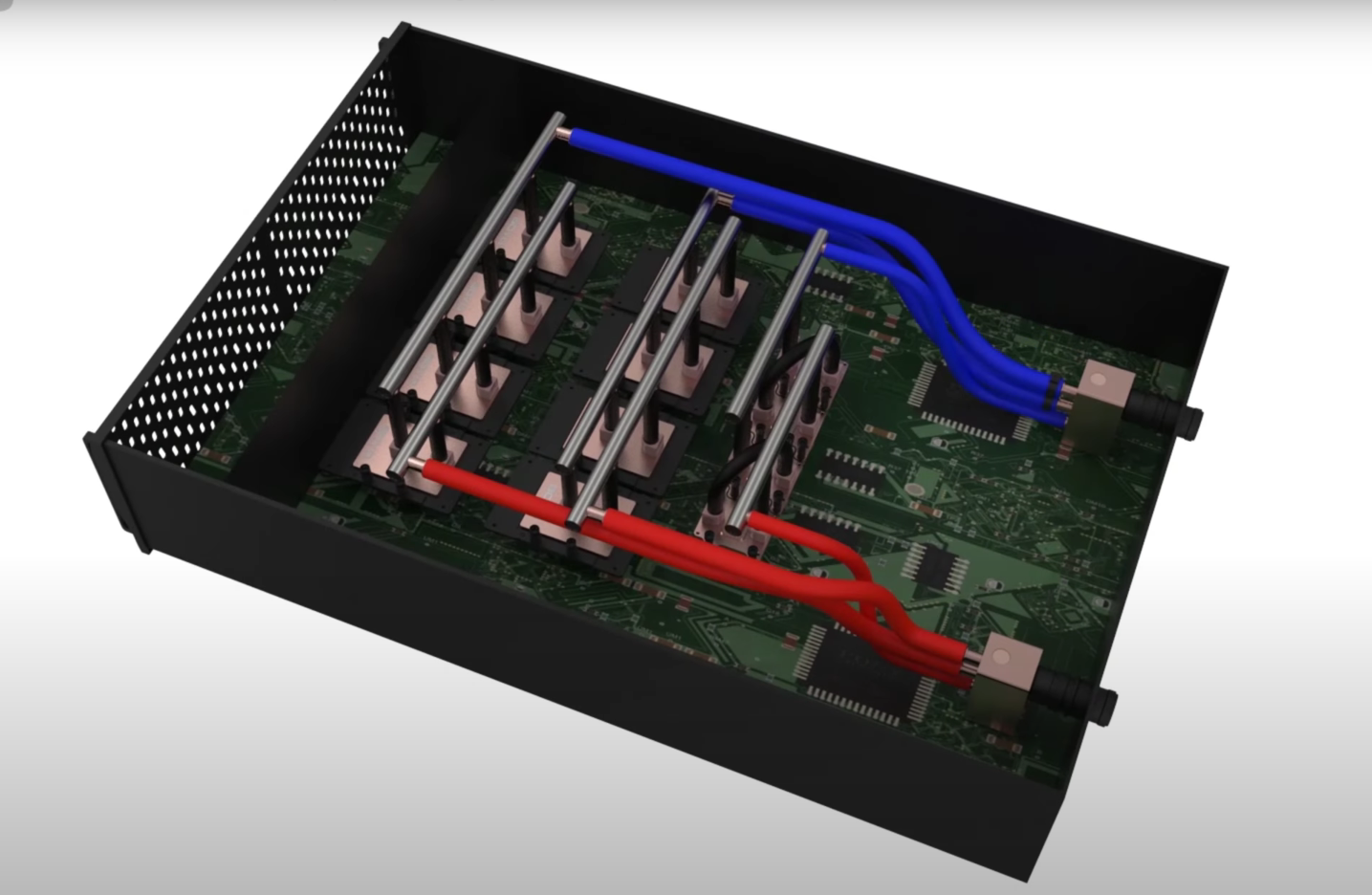With the rapid development of the internet andcloud computing technologies, data centers have become a focal point of investment across the country as a key representative of new infrastructure. Behind the large-scale construction of data centers, liquid-cooled data centers have become a "celebrity" in the industry. What is a liquid-cooled data center? What are its advantages? How is its development progressing? What challenges does it face? What are the future trends? Lori, a thermal management company, will guide you through these questions.
What is a Liquid-Cooled Data Center?
A liquid-cooled data center refers to a data center that utilizes liquid cooling technology and liquid-cooled servers. Liquid cooling involves using liquid instead of air as a coolant to transfer heat away from heat-generating components. Liquid-cooled servers inject liquid into the server to carry away heat through heat exchange. The industry divides liquid cooling into direct cooling and indirect cooling. Currently, direct cooling mainly employs immersion cooling technology, which can be further classified into phase-change and non-phase-change types, while indirect cooling primarily uses cold plate liquid cooling technology.
What are the Advantages of Liquid-Cooled Data Centers?
Liquid-cooled data centers offer significant advantages over traditional air-cooled data centers:
1. Efficient Cooling and Stability: Liquid conducts heat 25 times better than air, enabling rapid and effective cooling of IT equipment, stabilizing CPU temperatures, and ensuring stable server operation.
2. Energy Savings and Noise Reduction: Liquid-cooled data centers eliminate air conditioning systems and their infrastructure, replacing them with circulation pumps, saving construction costs and about 30% in energy consumption, lowering the PUE (Power Usage Effectiveness) to 1.05, thus meeting green data center requirements. Additionally, liquid cooling systems produce less noise, achieving a "silent room" effect.
3. Increased Server Density and Computational Efficiency: Liquid-cooled data centers save significant space, allowing for more servers to be accommodated. Their excellent cooling capacity can handle high power density, enabling the configuration of high-density servers and enhancing computational efficiency.
4. Insensitivity to Environmental Factors: Liquid’s specific heat capacity is unaffected by altitude or pressure; thus, the cooling efficiency of liquid-cooled data centers in high-altitude areas is comparable to that at lower altitudes, maintaining high cooling efficiency.
5. Economic Value Creation: The heat in liquid-cooled data centers can be directly integrated into building heating and water supply systems, satisfying the heating and hot water needs of nearby residents, thus generating additional value for the data center.
How is the Development of Liquid-Cooled Data Centers ?
In recent years, sustainability has gradually become the theme of data center construction, and liquid-cooled data centers are experiencing a development surge. Numerous typical applications have emerged in the market, such as cubic liquid phase-change cooling computers. These liquid-cooled data centers showcase advantages such as efficient heat dissipation, high power density, and low PUE, promoting regional technological research and development, industrial clustering, transformation and upgrading, and innovative development.
What Challenges Do Liquid-Cooled Data Centers Face?
In terms of technological development, liquid-cooled data centers face reliability concerns, such as whether electronic components immersed in liquid for extended periods will experience corrosion and how to ensure the safety of liquid cooling pipelines. Promotion-wise, the lack of industry standards significantly hinders the development of liquid-cooled data centers. Additionally, the high investment costs and clients' skepticism regarding the reliability of liquid cooling technology and energy savings need to be addressed to increase customer acceptance. Moreover, the entire liquid cooling industry is still in its nascent stage, with an immature industrial chain and ecosystem.
What are the Future Development Trends for Liquid-Cooled Data Centers?
In the future, liquid-cooled data centers will exhibit the following trends:
1. Integration of Air and Liquid Cooling: The data center temperature control market will see a new pattern of “air cooling + liquid cooling” integration. Clients will choose different cooling solutions based on their needs.
2. Efficiency Evolution: With the iterative development of various liquid cooling devices and their supporting products, the liquid cooling ecosystem will gradually improve. The integration of AI technology will accelerate the transition from manual to intelligent operations, enhancing operational and maintenance efficiency in data centers.
As a newcomer in the data center field, liquid-cooled data centers are gradually becoming a focal point for industry development due to their significant advantages. Lori, a thermal management company, will continue to monitor the development dynamics of liquid-cooled data centers, providing quality liquid cooling solutions to support green, efficient, and sustainable development in data centers.






